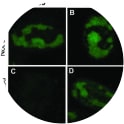We could not find the product you're looking for. Please try to search again.
6858 Reagents
Anti-ICAM3 [ICAM 3.2]
Invented at University of Oxford
Anti-HLADR [LHM 4]
Invented at Queen Mary University of London
Anti-Cytochrome P450 4A2, 4A3 [Clo4]
Invented by Prof Roland Wolf at University of Dundee


